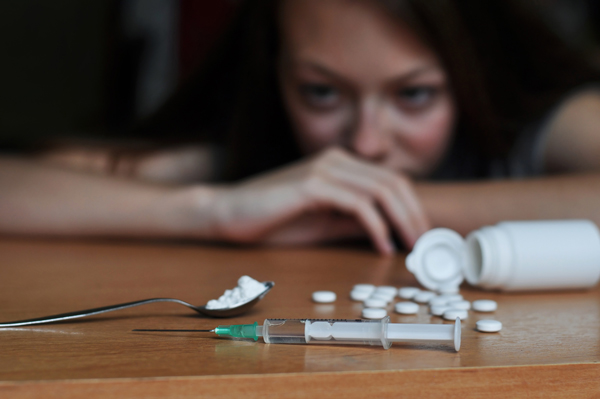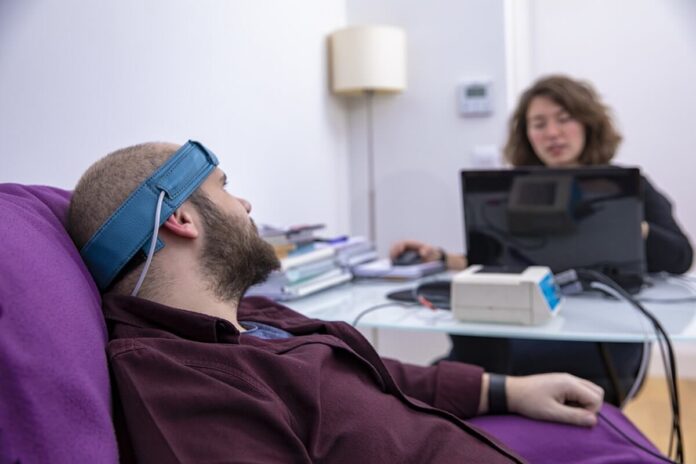
Drug addiction is a chronic, relapsing disease where the victim is constantly looking to use a drug despite its harmful effects. Addiction is the most severe form of a substance use disorder, and experts regard it as a complex mental disease.
The road to addiction often starts with the victim voluntarily using a drug and continues to do so periodically. With time, the person becomes too fixed on the drug such that their ability to choose otherwise becomes compromised.
But how do you know if your prevalence has become an addiction? Here’s a few telltale signs that can help you be sure. Visit the site The Edge Treatment to learn more about it.
Warning Signs That You May Be Suffering From an Addiction

1. Increased Tolerance for the Substance
Developing a higher tolerance for a drug is a strong indicator that your body has developed a significant dependency on the substance. If you feel an urge to use higher amounts of the drug, consider it a concerning sign that you could be addicted.
2. Erratic Behavior
Unusual behavior that often leads to reckless, dangerous, or even violent activity is a symptom evident in a lot of substance use addictions. Depending on the drug, withdrawal may present physical and emotional distress that can cause feelings of vulnerability, paranoia, power, or euphoria, all of which can trigger erratic and unprecedented behavior on the addict.
3. Change in Physical Appearance
Long-term abuse of a drug can lead to drastic changes in a person’s overall appearance. Many drugs often suppress the appetite of the user causing visible changes in their weight and physical frame.
Other side effects expected from prolonged drug use depend on the drug involved. For instance, teeth discolorations could point towards a meth addiction.
Can Drug Addiction Be Treated?

Even as substance addiction threatens to impact a person’s life negatively, there are treatment options that directly address the harm done and help the person live a healthy lifestyle.
Yes, individual experiences will differ, but in general, people who go through an addiction rehab program successfully can expect to go through at least three stages of treatment. They include admission, detox, and rehabilitation.
Here’s a brief breakdown of what they involve.
The Addiction Treatment Process

Transitioning from a substance use addiction to a healthy, sober life is not an easy journey. It requires utmost dedication, commitment, and hard work.
No one process applies to all drug alcohol treatment centers, but the intake phase is a process you’ll find co-occurring across most, if not all, rehab centers. This stage will involve the patient meeting with an expert to discuss and develop a treatment plan based on the patient’s medical, emotional, and social needs.
Once the patient is onboarded, they will go through the detoxification phase. Detox involves safely removing addictive substances from the patient’s body.
However, this stage is often unpleasant for the patient, and they can develop very severe withdrawal symptoms. Medication is used in such scenarios to ease the withdrawal symptoms and make the patient a lot more comfortable.
The next stage that follows is rehabilitation through therapy.
Addiction goes further beyond a physical dependence on alcohol or drugs. Even after the detox phase of drug rehabilitation, you face a high risk of relapse even if your body is no longer hooked on the substance you’re trying to recover from.
To fully kick the habit of addiction, you need to address the underlying aspects of your life that make you vulnerable to addiction. Such factors could be environmental or life events such as stress, trauma, grief, or even early exposure to substance use.
As such, drug rehab centers use a combination of therapy sessions designed to help patients recover from the addiction and navigate life situations without turning to drugs or alcohol.
Here is a list of three types of therapies you can expect to find from a drug alcohol treatment center.
1. Psychotherapy

Otherwise known as talk therapy, psychotherapy is a treatment method where a trained therapist treats a patient’s psychological problems. This form of therapy aims to improve the patient’s overall mental well-being to make improved changes in their sleep habits, diet, exercise, and lifestyle.
Psychotherapy incapsulates one or more styles of therapy such as cognitive-behavioral therapy (CBT), psychodynamic therapy, and humanistic therapy. In some cases, the results have been so effective that patients did not require pharmacological intervention.
2. Massage Therapy
Massage therapy is understood to be the opposite of psychotherapy because it focuses on the body rather than the mind. Its effects, however, are beneficial to both physical and mental wellness.
Rehabilitative massage therapies are usually for people in recovery who experience a sharp decline in dopamine, which is a normal withdrawal symptom. The massage triggers the body to release more dopamine, making it an excellent natural technique for treating general anxiety and body discomfort.
In some cases, yoga is included to help regulate stress hormones and promote calmness for the body and mind.
3. Biofeedback Therapy

Biofeedback therapy focuses on the connection between the patient’s body and mind. It is designed to help people improve their overall health by teaching them how to control specific body responses like their heart rate and blood pressure.
Biofeedback therapy is noninvasive and doesn’t involve medical intervention. Instead, therapists train patients how to adjust their bodies so they can reduce nervousness and less stressed so they can feel more relaxed.
This way, the patient can be more in tune with their bodies and prevent triggers that may cause them to pick up addictive substances.
A Drug Alcohol Treatment Center Can Help You Recover
Successfully detoxing from alcohol or drug addiction is a significant achievement that anyone who struggled with a substance use disorder should be proud of. However, the journey is not quite over, and there’s more work to be done through therapy.
Keep in mind that addiction treatment is not one-size-fits-all. A drug alcohol treatment center will provide treatments depending on the patient’s needs, the substance involved, and the level at which they’ve developed a dependence.











